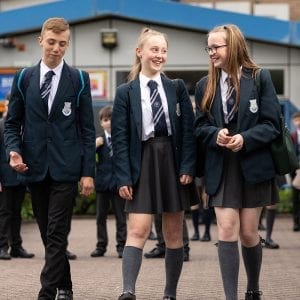Geography
Vision
‘Geography underpins a lifelong ‘conversation’ about the earth as the home of humankind. Geography therefore contributes to a balanced education for all young people in schools, colleges and other settings’ A Different View, Geographical Association (2009)
At Birchwood we aim to equip young people with the powerful knowledge about people and places which will enable them to play a full and active role as a global citizen. Geography seeks to bridge the divide between people and the environment, between different places and between the humanities and natural sciences. Geography acknowledges the links between peoples, places and bodies of knowledge.
How do we build on what students learn at KS2?
We want to ensure that our students are thoroughly supported in their transition from KS2 to KS3 Geography. To do this, we work with local primary schools so that our curriculums complement one another. In year 7, we purposely prioritise revisiting and rebuilding on the following:
- Development of locational and place knowledge of area such as the United Kingdom and continents and oceans.
- Enhancing map and geographical skills with the use of OS maps.
- Building subject-specific terminology.
- Developing topics such as; water cycles, energy resources, earthquakes and rock types.
We complete a baseline assessment at the start of year 7 to assess students’ geographical knowledge. The assessment has been created from the key stage 2 national curriculum.
How do we cover the KS3 National Curriculum and beyond?
We believe that covering the KS3 National Curriculum is hugely important, but we also recognise how crucial it is for students to be exposed to wider knowledge beyond this.
We ensure that we cover the KS3 National Curriculum by covering the following (KS3 headings/ key points)
- Year 7: knowledge of maps and atlases, plate tectonics, the United Kingdom, population and urbanisation, economic activity and Africa.
- Year 8: Population and urbanisation, international development, hydrology, glaciation, Asia/China/Russia/Middle East, weather and climate.
- Year 9: Plate tectonics, hydrology, natural resources, climate change, polar deserts, weather and climate, and urbanisation.
- Fieldtrips for all year groups.
Beyond the curriculum, we provide:
- A comprehensive study of Warrington’s geography.
- An understanding of sustainability and the importance of this within society.
- A weekly Eco Hub extra-curricular club to promote environmental issues.
- A range of trips to support curriculum topics where possible.
What do we cover in KS4 and how do we aspire towards KS5?
We follow the AQA GCSE Geography specification and cover the following topics:
Physical Geography (Paper 1):
- Natural Hazards
- Living World
- UK Landscapes: Rivers and Coasts
Human Geography (Paper 2):
- Urban Issues
- Economic World
- Resource Management
Fieldwork and Skills (Paper 3):
- Human Fieldwork: Salford Quays
- Physical Fieldwork: River Wyre
- Issue Evaluation
We ensure that our curriculum revisits key ideas that are covered in key stage 3 and provide a foundation for study at key stage 5. Such as;
- Sustainability.
- Locational and Place knowledge.
- The understanding of how human and physical processes interact.
- Geographical skills.
We want to ensure that our students are ready for life beyond KS4. To do this, we expose our students to a range of ambitious content and ideas:
- Explicit links to A level Geography and Sociology
- Encouragement of critical thinking around contemporary issues
- Lifelong sustainability
- Careers





